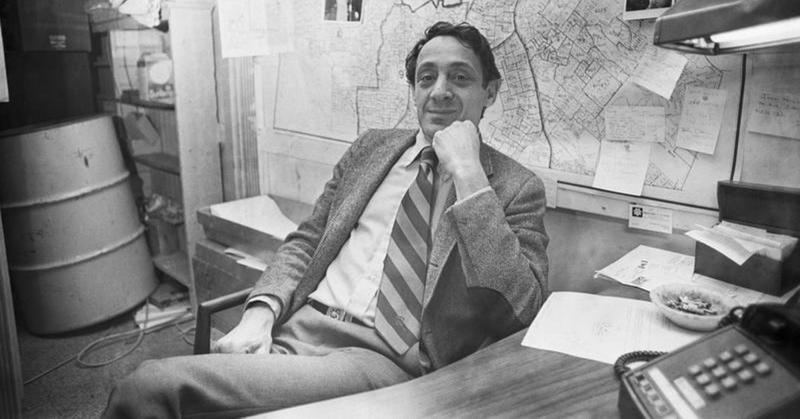Who Was Harvey Milk?
By | December 5, 2021

On November 8, 1977, Harvey Milk became the first openly gay man elected to public office in California after winning a seat on the San Francisco Board of Supervisors. Born on May 22, 1930 in Woodmere, New York, Milk was known for being a tough kid. He went on to serve in the Korean War as a diving officer and eventually rose to the rank of lieutenant before his sexuality earned him a "less than honorable" discharge.
During the 1960s, Milk worked on Wall Street, where his co-workers introduced him to the world of conservative politics. He even campaigned for Barry Goldwater. By 1969, however, he had been swayed by romantic partners on the other side of the political spectrum to abandon conservatism and move to San Francisco. The more tolerant culture of the Castro District, known for its acceptance of the L.G.B.T.Q. community, was a revelation for Milk, and he became deeply involved in the gay rights movement.
Milk first ran for office in 1973 for a position in the city's government, and though he won 16,000 votes by reaching out to communities of color and the working class, it was just barely enough to break into the top 10 of candidates. Later that year, however, when the Teamsters boycotted Coors beer, Milk saw an opportunity to marry the struggles of gay and workers' rights, promising to convince every gay bar in the Castro to stop selling Coors if the union began hiring gay people. Since the gay community was approximately one-fifth of their consumer base in San Francisco, Coors quickly threw in the towel, and Milk gained some much-needed political street cred, becoming known as the "Mayor of Castro Street."

In 1975, George Moscone was elected mayor of San Francisco thanks at least somewhat to Milk's support and offered him a position as a city commissioner, but Milk kept his eyes on the prize. In 1977, he was finally elected to the Board of Supervisors after garnering major support from the increasingly influential Castro District.
It wasn't all rainbows, however: Sworn in alongside Milk was Dan White, who had won his seat actively campaigning against the gay community. The uneasiness of the election aside, almost immediately after he took office, Milk found himself going toe-to-toe with the much more established John Briggs of Orange County. Briggs was pushing the so-called Briggs Initiative of Prop 6, which mandated firing gay teachers.
Initially, the bill garnered tempered but mainstream support, but Milk traveled around the state to attend every single function that Briggs hosted and rally opposition to the bill. When election day rolled around, it lost by over a million votes, which was seen as a major win for gay rights and a testament to Milk's tenacity. With that success under his belt, Milk set his sights even higher with a plan to run for mayor within the following decade, but his dreams were tragically cut short.

Milk was no stranger to death threats. In fact, just nine days before he died, he made a tape which began:
This is Harvey Milk speaking on Friday, November 18, 1978. This tape is to be played only in the event of my death by assassination. I fully realize that a person who stands for what I stand for, an activist, a gay activist, becomes the target or potential target for a person who is insecure, terrified, afraid, or very disturbing. Knowing that I could be assassinated at any moment, at any time, I feel it's important that some people know my thoughts and why I did what I did.
Of all the people who plotted his death, however, Milk probably never imagined it would come at the hands of his fellow supervisor. Dan White quit the board soon after the loss of Prop 6 but regretted the decision and unsuccessfully pleaded Moscone for his position back. Angry and disgusted, White sneaked back into City Hall through a window and headed to Moscone's office, where he shot the mayor twice in the chest and twice in the head. He then proceeded to Milk's office, where he shot him three times in the chest and twice in the head at point-blank range.
Despite the apparently premeditated nature of his actions, White was only convicted of voluntary manslaughter thanks to the now-infamous "Twinkie defense" argued by his lawyers that depression over losing his job "diminished [his] capacity" for decision-making, evident by the former health nut's consumption of junk food. Public outrage over the verdict was so severe that protests later known as the White Night Riots broke out. White served five years in jail but died of self-inflicted carbon monoxide poisoning two years after his release, and California eventually did away with the "diminished capacity" defense altogether. Meanwhile, the name "Harvey Milk" became synonymous with gay pride and rights, emblazoned on schools, organizations, and landmarks across the country but especially in San Francisco. In 2009, President Barack Obama awarded him the Presidential Medal of Freedom.

